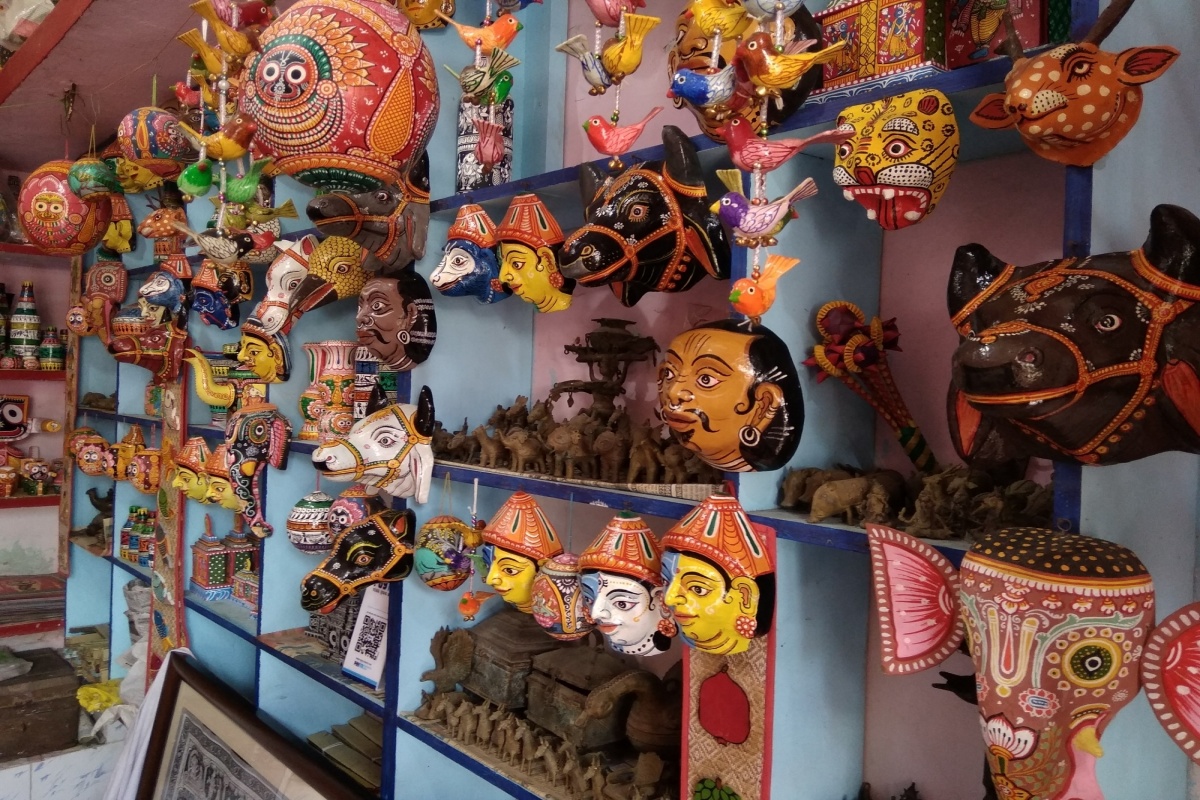Handicraft Festival Showcases India’s Heritage in Punjab
A vibrant state-level handicraft festival in Fazilka, Punjab, celebrates India's diverse cultural heritage with handmade crafts, traditional performances, and multicultural experiences.
“We strive hard to be innovative in our product concepts, designs and processes,” Shipra said, adding that the enterprise provides a medium of livelihood to the women artisans of Odisha.

Rajasthan craft( photo: stock)
Starting its journey from a small village in Odisha’s Balasore district with six artisans five years ago, KalaGhar is not only creating employment opportunities for rural women artisans, but also reviving handicrafts in Odisha.
The craft-based social enterprise has empowered over 200 rural women aged between 19 and 50 years. Now, these women earn Rs 1,000 to Rs 5,000 per day.
Advertisement
This craft form has also become a source of reform for the prisoners lodged at the Baripada jail in Odisha’s Mayurbhanj district
Advertisement
KalaGhar works like an e-commerce platform, inspired by the concept of ‘arte util’, meaning �useful art’ in Spanish. KalaGhar aims to improve the financial capacity of the Sabai artisans in Mayurbhanj district, which homes 45 tribal communities. They not only help the artisans develop the products, but also assist them to understand design and trends.
From creating urban tastes and preferences and at the same time retaining the Indian art form’s history and legacy, KalaGhar works with various grass-roots level artists, NGOs and self-help groups and assist them in understanding minimalistic and contemporary designs.
Covering over 10-15 villages in Mayurbhanj and Balasore districts in Odisha, the initiative has been ensuring social and economic empowerment for women by complementing their skills and art of embellishment, and by adding new freshness to the art through training.
Started in July 2016 by sisters Megha and Shipra Agarwal (both in their 30s), KalaGhar is empowering women artisans by creating dignified livelihood opportunities while sending 100 per cent sustainable home decor products nade with natural fibre to the market.
“We started our journey in a small village in Balasore district with six artisans. Currently, we are working with over 200 artisans from Mayurbhanj and Balasore,” Shipra told IANS.
She further said that the women can work at their homes during their free time and generate their own earnings.
“In the beginning, we used to visit and approach these women, but several of them have come to us and expressed their desire to work. We provide them with necessary training and also pay them from Rs 150 to Rs 250 per day, as per the time they spend with us during learning of the handicraft skills or shaping the art which they already know.”
Sabita, Subhadra, Aarti, Namita and many more from Pratappur village have got employment and are enjoying their work along with handling their routine works at their homes, Shipra said.
“We strive hard to be innovative in our product concepts, designs and processes,” Shipra said, adding that the enterprise provides a medium of livelihood to the women artisans of Odisha.
Intricate works of Pipili, Pattachitra paintings, delicate silver filigree jewellery, Paralakhemundi, tribal dhokra figurines, and Sabai grass weavings — all these are art forms belonging to Odisha. But the Agarwal sisters felt that lakhs of artisans working on this art are not getting their share of the due.
So, to revive the craft market, they founded KalaGhar in 2016. With this, they aimed to revive the handicraft industry in Odisha, Chhattisgarh and West Bengal.
To give social meaning to their venture, the sisters also collaborated with the Baripada jail and conducted a weeklong workshop on Sabai weaving for the prisoners housed there.
Advertisement